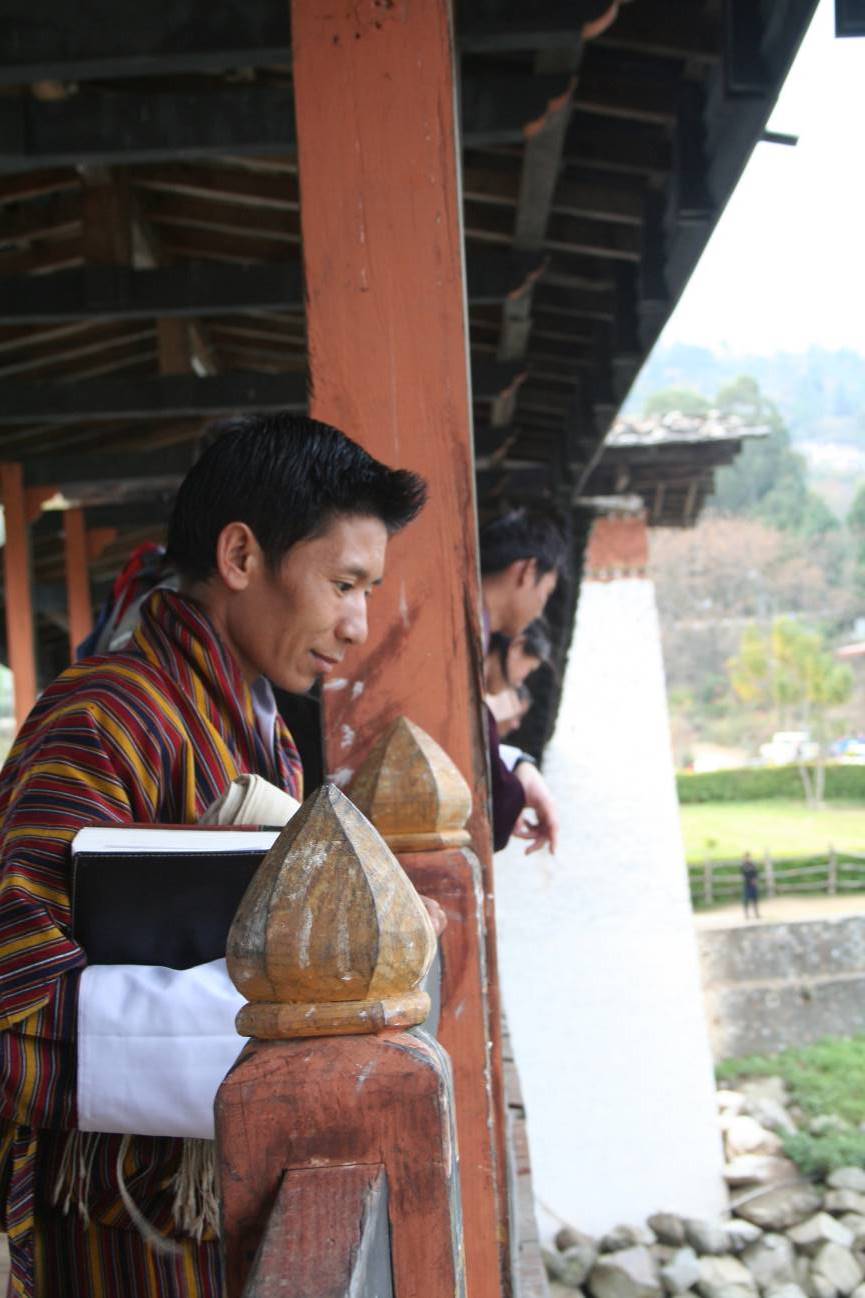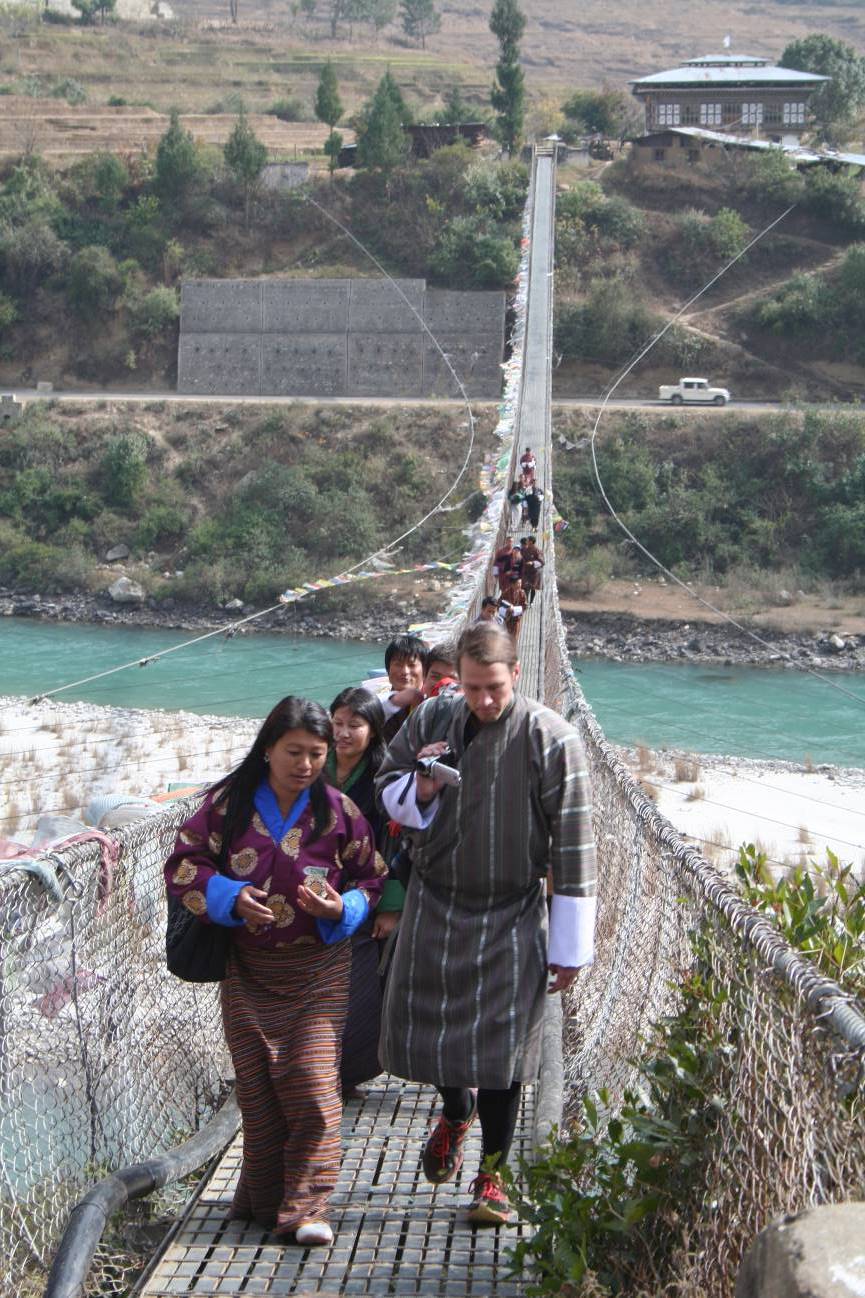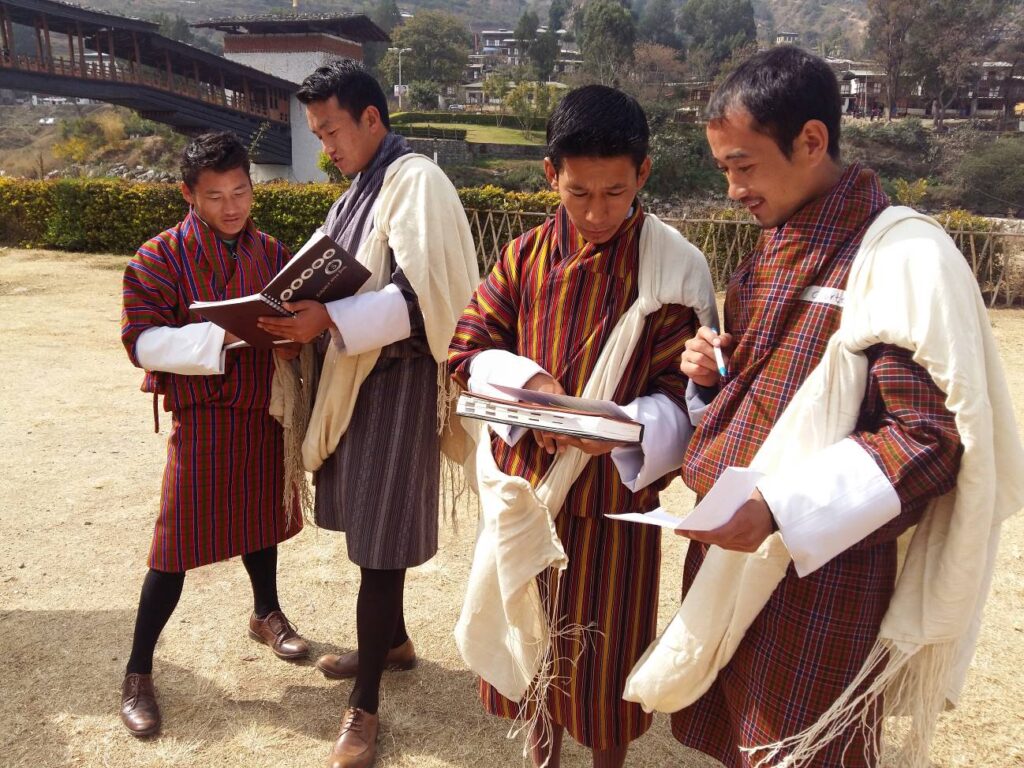Editor’s note – This is the third installment in our travel blog of the Teton Science Schools’ team’s trip to Bhutan. To read the first and second installments, click here and here.

One of the tenets of Teton Science Schools’ educational framework is “intentional culture.” Even as we continue to define what that means to us organizationally, here at our professional development workshop in Bhutan we have had great success translating “intentional culture” from theory into practice.
 The final three days of our place-based education workshop included further inquiry and design projects as well as time for the Bhutanese teachers to plan lessons and research projects to bring back to their schools. Throughout that time, the most profound moments were when we, as facilitators, had one-on-one or small group interactions, building relationships and community within our team, creating an intentional culture.
The final three days of our place-based education workshop included further inquiry and design projects as well as time for the Bhutanese teachers to plan lessons and research projects to bring back to their schools. Throughout that time, the most profound moments were when we, as facilitators, had one-on-one or small group interactions, building relationships and community within our team, creating an intentional culture.
 On the third day of the program, for example, we took the teachers into the Dzong, the primary administrative and religious building for the Punakha district, to investigate the place and consider potential design opportunities in the building. Then we walked to the longest swinging bridge in Bhutan over the Poh Chu River to continue our inquiry. The conversations we had with teachers on the walk to and from the bridge were amongst the richest during the program. I learned about the Design for Change projects that Tshewang Dorji’s school began last year, and I heard about the outdoor writing lessons that Bhagat Subba is leading with his students. Nate and Nick, the other members of the TSS team, each had similar conversations.
On the third day of the program, for example, we took the teachers into the Dzong, the primary administrative and religious building for the Punakha district, to investigate the place and consider potential design opportunities in the building. Then we walked to the longest swinging bridge in Bhutan over the Poh Chu River to continue our inquiry. The conversations we had with teachers on the walk to and from the bridge were amongst the richest during the program. I learned about the Design for Change projects that Tshewang Dorji’s school began last year, and I heard about the outdoor writing lessons that Bhagat Subba is leading with his students. Nate and Nick, the other members of the TSS team, each had similar conversations.
 Another tradition that helps grow the intentional culture here in Bhutan is the annual “jam session,” or dance party, that the teachers throw for the TSS facilitators before the final day of the program. Begun last year, the dance party has become a way to blend traditional and modern cultures as we share traditional Bhutanese dances, Western swing dances, and, of course, karaoke. To me, these examples represent the best of place-based culture, both in and out of the workshop.
Another tradition that helps grow the intentional culture here in Bhutan is the annual “jam session,” or dance party, that the teachers throw for the TSS facilitators before the final day of the program. Begun last year, the dance party has become a way to blend traditional and modern cultures as we share traditional Bhutanese dances, Western swing dances, and, of course, karaoke. To me, these examples represent the best of place-based culture, both in and out of the workshop.
Finally, the tradition that closes the workshop is a “thank you circle.” The thank you circle is an opportunity for the teachers to recognize the opportunities that come from the network built within our group as a result of these workshops. Some of the teachers have known and worked with TSS for over five years through workshops in Jackson, WY and in Bhutan.
The intentional culture that we build within the group might mean more to me than to the teachers. I value the opportunity to build multi-year relationships with the teachers, watching them grow as educators and leaders in their schools. As they share the place-based ideas that they learn within their schools and communities, they impact students and other teachers, spreading our commitment to intentional culture even further. I am humbled to have the opportunity to work with these teachers.

Travel Update: We wrapped up the workshop on Sunday afternoon, January 17, in Punakha and celebrated the birthday of our host, Mr. Wangchuk, with him that evening. On January 18th we traveled back over Douchla Pass to Thimphu, Bhutan to do a bit of site seeing and run a few errands. On January 19th we depart for Samtse, Bhutan.


